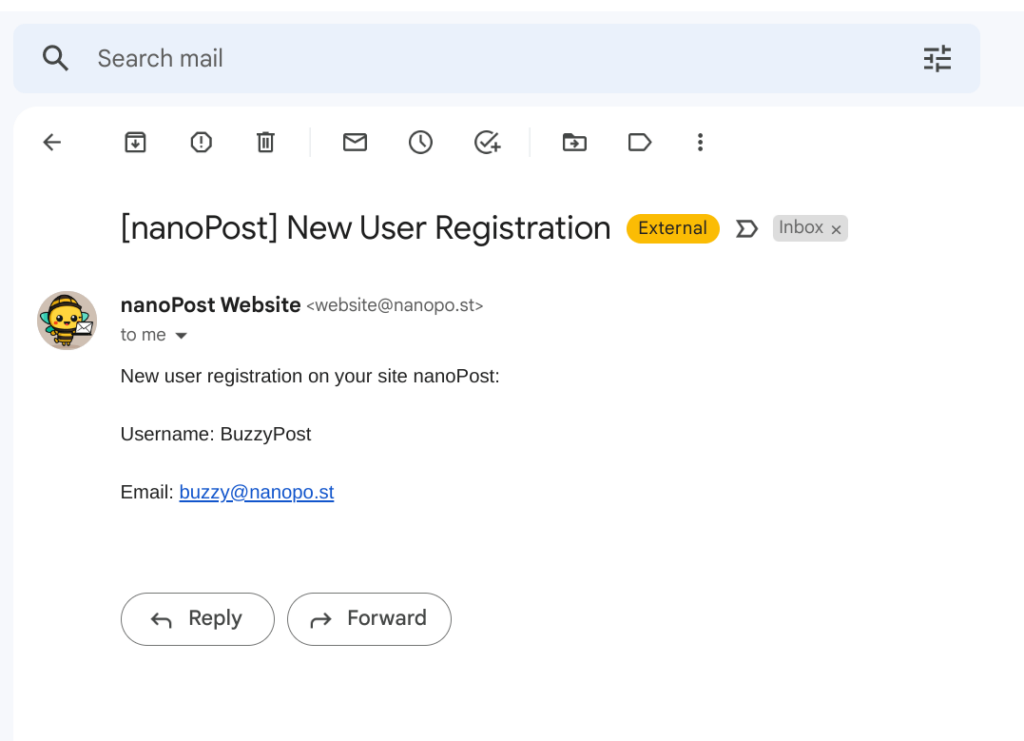Transactional email and WordPress

What are transactional emails?
Transactional emails are automated emails that are triggered by a specific action or event on a website, such as a purchase or a password reset request. These emails are sent to individual recipients, providing them with information related to the specific action they have taken. In contrast to bulk emails, which are sent to multiple recipients and are generally used for marketing purposes, transactional emails are essential for maintaining customer relationships and driving repeat business.
How are transactional emails different from marketing emails?
Transactional emails are different from marketing emails in their purpose, content, and legal requirements. Unlike marketing emails, transactional emails are sent to one individual recipient at a time, usually following a specific action or commercial transaction, and are intended to provide information related to that transaction or action.
Examples of transactional emails include order confirmations, shipping notifications, and password reset requests. Transactional emails do not require the recipient to have subscribed to any mailing list, nor do they need to include an unsubscribe link.
In contrast, marketing emails (or “bulk emails”) are subject to legal requirements and recipient consent, and must include an unsubscribe link. Examples of marketing emails include:
- Newsletters
- Promotional offers
- Special event announcements.
Sending marketing emails will in most jurisdictions be proscribed by law and include requirements for:
- Recipient consent
- Content disclosures
- An easy opt-out mechanism
In some jurisdictions, marketing emails may only be sent to contacts who have explicitly opted in to receiving such messages. Additionally, marketing emails must contain clear and accurate information about the sender’s identity, the purpose of the message, and any commercial or promotional content. They must also provide an easy way for recipients to opt out of receiving future marketing messages. Failure to comply with these requirements can result in legal penalties and damage to the sender’s reputation.
While both transactional and marketing emails can be important for maintaining customer relationships, they serve different purposes and require different considerations in terms of content, audience, and legal compliance.
Transactional emails in WordPress
WordPress comes with several built-in transactional email templates that can be customized to suit the needs of different websites. In addition, the WooCommerce plugin, which is commonly used for building e-commerce websites on WordPress, also includes several transactional email templates that are specific to online stores.
Emails sent by WordPress core
Here is a list of emails that are built into WordPress core:
- New user registration: Sent to users who have just registered on the website.
- Password reset: Sent to users who have requested a password reset.
- New comment: An email is sent to the administrator when a new comment is posted on the website.
- WordPress core update: WordPress sends an email notification to the administrator when a new version of WordPress is available for upgrade.
- Plugin(s) updated: An email is sent to the administrator when plugins are updated on the website. This email contains information about the updated plugins and any changes that have been made to them.

Emails sent by WooCommerce
Here is a list of emails that are built into WooCommerce:
- New order: Sent to the site administrator and the customer when a new order is placed.
- Processing order: Sent to the site administrator and the customer when an order status changes to “processing.”
- Completed order: Sent to the site administrator and the customer when an order status changes to “completed.”
- Customer invoice: Sent to the customer as an invoice for their order.
- Customer note: Sent to the customer when a note is added to their order.
Emails sent by other plugins
Individual plugins in WordPress can also send their own transactional emails. For example, a ![]() contact form plugin might send an email to the website administrator when a visitor submits a contact form. This email could contain the details of the submission, such as the name and email address of the visitor, and the message they have sent.
contact form plugin might send an email to the website administrator when a visitor submits a contact form. This email could contain the details of the submission, such as the name and email address of the visitor, and the message they have sent.
Similarly, ![]() security plugins might send emails to the website administrator to alert them to any potential security threats or vulnerabilities on the website. Other examples of plugins that might send transactional emails include:
security plugins might send emails to the website administrator to alert them to any potential security threats or vulnerabilities on the website. Other examples of plugins that might send transactional emails include:
- E-commerce plugins that send order confirmations
- Event calendar plugins that send event reminders
- Membership plugins that send membership confirmation emails
These emails can be an important way for plugins to provide additional functionality and improve the user experience on the website. These all send emails that are transactional in nature, and would not fall under the rules that apply to marketing emails.
Enhancing WordPress transactional email delivery
To ensure transactional emails reach their intended recipients, it’s crucial to optimize their delivery. One way to improve the reliability and deliverability of transactional emails in WordPress is by using ![]() SMTP mailer plugins. These plugins allow you to route your transactional emails through a dedicated
SMTP mailer plugins. These plugins allow you to route your transactional emails through a dedicated ![]() email service provider (ESP) or your own SMTP server, which can result in better inbox placement and reduced chances of your emails being marked as spam.
email service provider (ESP) or your own SMTP server, which can result in better inbox placement and reduced chances of your emails being marked as spam.
Some benefits of using ![]() transactional email plugins, paired with a reputable ESP, for this type of emails include:
transactional email plugins, paired with a reputable ESP, for this type of emails include:
- Enhanced deliverability and inbox placement
- Reduced likelihood of being marked as spam
- Detailed analytics and tracking capabilities
- Greater control over email sending infrastructure
By leveraging SMTP mailer plugins, you can ensure your transactional emails are delivered effectively, helping maintain strong customer relationships and drive repeat business.
Summary
In WordPress and its plugins, various transactional emails are sent to users and site administrators to ensure smooth website operation and enhance functionality. These emails are essential for maintaining communication and improving the user experience on your website. Since they are transactional in nature, WordPress transactional emails likely don’t fall under the rules and regulations that apply to marketing or bulk emails, so you can rest assured they won’t cause any compliance concerns.
